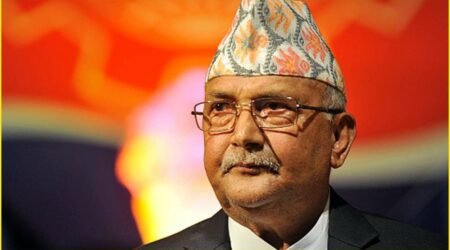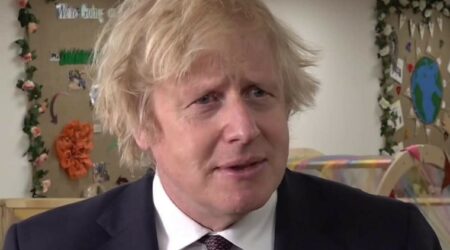By Vipul Tamhane
It was a country no one really wanted except for the colonial masters. The concept of Pakistan was an enigma for the muslim population of colonial India and everyone wanted a Pakistan in their own city or village, and not the one they got, a ‘moth eaten’ Pakistan.
The contradiction in Pakistan had born with itself. A ‘urdu’ speaking Pakistan, on both the West and Eastern wing, was imposed on a land which had its own language, dialect, and culture. The Pakistan Army was very quick to realize that this ‘artificial’ territory has to be sustained by management and force.
The current status of Pakistan in turmoil is nothing new for this land, and the people; the only thing that has changed is that religious extremists were never too powerful vis-à-vis the army. But this multi-headed Frankenstein has been nurtured and nourished by the ‘establishment’ itself. As a result, the people are under a constant grind between these two.
Jinnah’s Pakistan
Muhammad Ali Jinnah, the founder of Pakistan, in his first speech to the assembly on August 11, 1947, created a ‘Neverland’ vision for his Pakistan. He essentially wanted his own ‘new India’ away from India.
No one defined a clear definition of what it meant to be a Muslim in Pakistan, so much so that Jinnah himself a Twelver Shia, had to have two separate funerals, one according to Sunni rituals in the open and the other prior to that according to Shia norms at his home, as written by Jinnah’s sister Fatima in her book in 1955.
Ayub Khan, the first military ruler of Pakistan, had written in a paper in the Foreign Affairs journal in 1960 how Islam should become the fulcrum for the existence of Pakistan. It is still the military definition of Islam for Pakistan, that apparently holds thenceforth, till date. And thus, beginning in the 1960s, the military fostered extremist Islamic clergy to oppose any dissent.
An Islamic State
Those who protest that Pakistan is anti-Islamic in its governance may highlight various factors that are perceived as a gap between the proposed fundamentals and the reality of this Islamic state. Some experts cumulatively argue that Pakistan’s governance and legal systems do not adequately uphold Islamic principles or that they selectively apply certain aspects of Islamic law.
This can include concerns about the protection of religious minorities’ rights, and the influence of non-Islamic cultural elements. Some critics may argue that the rise of extremism and sectarian violence within Pakistan undermines its claim as an Islamic state. They may point to instances of terrorist attacks, violence against religious minorities, or the influence of radical ideologies as evidence that Pakistan does not embody true Islamic values. Political corruption, nepotism, and the misuse of power within Pakistan’s political system are contrary to Islamic principles of justice, accountability, and good governance. Concerns may be raised about women’s rights and gender inequality within Pakistan, which contradicts Islamic principles of equality and justice as certain laws or social norms restricting women’s freedoms and opportunities are not unknown.
Deep State formulation
Choudhry Rahmat Ali, a friend of Jinnah’s since 1934, who is said to have drafted a vision of Pakistan jointly with Jinnah had written ‘Now or Never’, what Jinnah came to refer to as ‘Pakistan’ in his August 11, 1947 speech.
As Khurshid Ahmad writes in “The Making of Pakistan: A Study in Nationalism” Choudhry was disillusioned by the attitude of politicians, corruption and lack of vision among Pakistani leadership. All he saw was individuals at the helm of affairs who were unconcerned about governance and whose only goal was to acquire money and gain power and influence inside the system. He went to England to settle, never to return, realizing the blunder that was committed in the name of creating Pakistan.
In 1958, a series of coups first by Gen Iskander Mirza followed by Gen Ayub Khan’s, created complexities in the attitude of the Army that became the bedrock for the Deep State governance that contributes greatly to the modern day Pakistani political drama. The Mirza family fled to London to avoid persecution, the ritual that continues to be practiced, like Gen Aslam Beg and General Pervez Musharraf. Mirza lived and died in poverty in London. He was accorded a state funeral by the Iranian government on orders of his old friend, the Shah of Iran.
Connecting the dots to today
Pakistan has a history of ousting prime ministers from power through various means, including military coups, judicial interventions, and political maneuvering. This has resulted in a turbulent political landscape and a cycle of instability in making since the country’s formation.
Liaquat Ali Khan was assassinated in 1951 during a public event in Rawalpindi. Nazimuddin was dismissed by the then-Governor-General Ghulam Muhammad in 1953, citing political unrest and inability to handle the anti-Ahmadiyya movement. In 1955, Ghulam Muhammad again dismissed the government of the then-incumbent Prime Minister Muhammad Ali Bogra, citing political disagreements and a lack of cooperation with the military. Following that, in 1956 Chaudhry Muhammad Ali came and went within a year, forced to resign after disagreements emerged regarding the formation of a new constitution, apparently the one the military wanted.
Huseyn Shaheed Suhrawardy’s administration was overthrown in 1957 by Gen Iskander Mirza, who established martial law and became President, only to be banished by Gen Ayub Khan within a year. In 1977, Zulfikar Ali Bhutto’s government faced allegations of election rigging. This is when General Muhammad Zia-ul-Haq staged a military coup and removed Bhutto from power.
Bhutto was later arrested, tried, and executed. Nawaz Sharif’s first term as prime minister ended with his dismissal by President Ghulam Ishaq Khan in 1993 on charges of corruption and abuse of power. In his second term, he was overthrown in 1999 by General Pervez Musharraf in a military coup. This history may give Imran Khan an idea of the range of possibilities of his fate in the current scenario.
Experts say what is occurring with Imran Khan is nothing new. In Bilawal Bhutto’s father, ‘Asif Zardari’s case, an entertaining study of Pakistan’s political system, that he went from the PM’s house to jail when his missus, then Pakistan’s Prime Minister Benazir Bhutto, was dismissed in 1990 and returned to the PM house from jail in 1993 when she returned to power, and back to jail from the PM House in 1996 when she lost power for the second time. This in-and-out show became nail-biting, as when the Pakistan People’s Party (PPP) won the 2008 elections after Benazir’s assassination, he moved into the President’s House and all cases against him were gradually settled.
It is a country that is still trying to figure out where it fits in the world. Democracy and diplomatic discourse are foreign concepts to Pakistan as a result of its formative history.

Pakistan has struggled to uphold fundamental civility rules in its public life from its formation. Pakistan was and is plagued by religious and political violence since its early years to this day. Jinnah’s vision of Pakistan has failed to materialize. This is why politicians and political parties are hounding each other since a bureaucratic-military nexus has ruled Pakistan from its inception.
Vipul Tamhane is a counter terrorism expert and a visiting faculty with Pune University (SPPU) at Dept. of Defense and Strategic Studies (DDSS). He is also founder and Editor-in-Chief at Diplomacy Direct, a public interest Think Tank based in India.
The views expressed are not necessarily those of The South Asian Times












